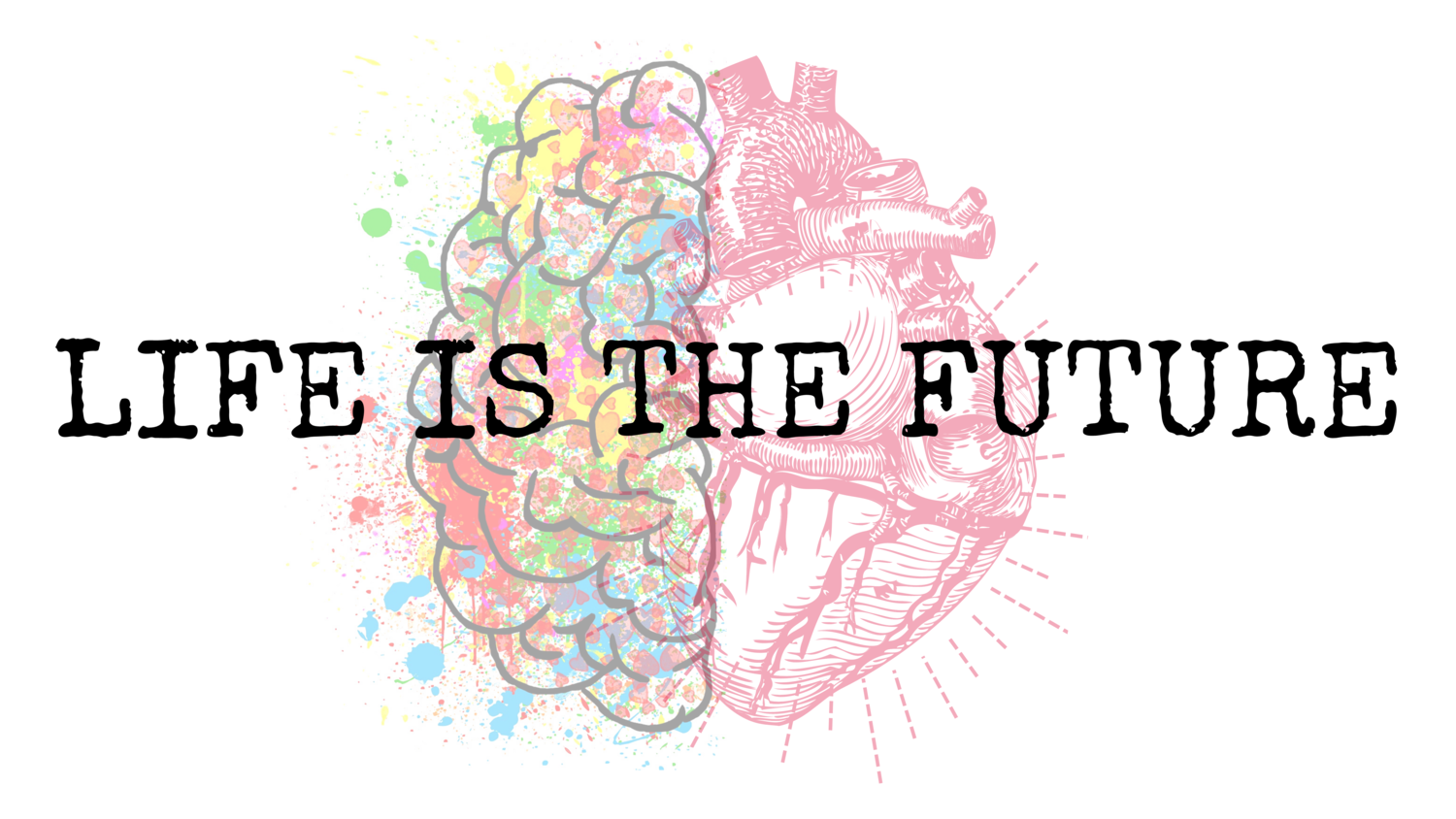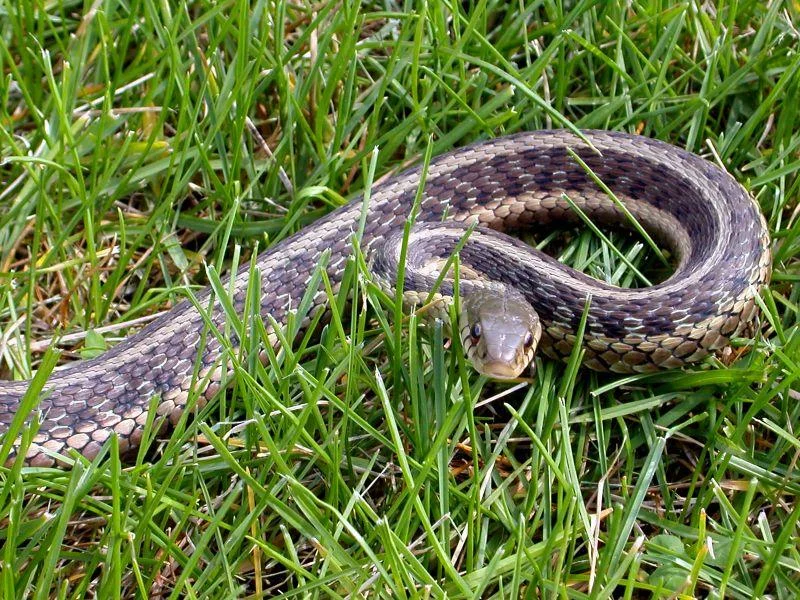Fool Me Twice, Shame On Me: Snake in the Grass
“Danger doesn’t lurk at every corner. It’s just hanging out, waiting for fear and horror to show up.” - Unknown
"You're too pragmatic," I've been told. "You give too many benefits of the doubt."
I guess I can agree with this, and with more thought, maybe this is the case because I consider people to be naturally, fundamentally, deep down and inherently, good.
This seems more like idealism versus pragmatism, but either way this viewpoint undoubtedly opens me up to being taken advantage of. Yet people aregood, right? At least most people? Okay... some?
Well, I keep the hope. It's that hope that can come back to bite me in the ass, of course. Like a snake in the grass, striped selfish with immaturity, all hollow fanged, venomous, and lacking conscience.
I've heard that the first time people show you who they are, you're supposed to believe them.
But still, there's something keeping me from fully buying in to this outlook on culture. It seems almost pessimistic and in many ways flat out wrong. Particularly because much of that which is first presented to us just isn't the truth. I see too many people living their daily lives with masks on. Masks with personas attached; distant or passive, short-tempered or argumentative, they're auras, cheaply stapled at the string.
Self-protection in the form of fanged falsities.
Do you follow?
Somewhere underneath this proverbial mask is a real person, and like a snake skin that no longer fits, it's hard to see their true form without some scratching. It's there somewhere, but with the bulky outer layer things are dull and contorted.
Consequently, any trickery is just a reflection of that person, not our own lack of intelligence or tact.
Fool me once, shame on you. Fool me twice? Someone still isn't being truthful. So what are they guarding?
Sure, I have to accept the exceptions-- I have to be able to see that some individuals are, for lack of a better term, "bad," as learned somehow early in existence or as determined by a complex brain disorder of chemical origin. These are the sidewinders in the pack, you could say, abusive and violent with no remorse. To lack a moral compass could be the result of quite a few causes, all very sad.
It would be simply too utopian of me to trust that society could be void of these bad seeds.
While there are found differences in brain structure that are consistent among those labeled mentally disordered, it does not mean that any specific type of person will turn out to be a sociopath or a serial killer. Environment matters, as we know. A child’s brain develops differently with abuse and distress. Snaking back to my original statement, it is my contention that a very small fraction of the human population are truly born "evil."
There is something innately human in treating each other as if we all have something to offer.
To make a poor choice, to lie, to cheat, to steal, is generally a reflection of the above-mentioned mask. To be burned isn't another person's fault. Guilt lies solely in the aggressor. It can certainly stem from lack of morality, but can also be the bad decisions of a person hurting from within. A person lacking self-esteem or trying to swallow too much stress.
A person suffering themselves to make sense of the world around them.
• • •
At age nine I was bitten by a snake.
I remember it vividly because it was the first time I felt fanged teeth, but perhaps the bigger shock to my system was the lesson that followed.
It was a summer day in midwestern farm country, and while playing with a friend we saw a garter snake traveling through the grass near some corn stalks. It wasn't very big, no longer than the length of my childhood arm, but it was stunning. Blue-green and scaly and faster than I thought snakes would be. My friend was quick enough to catch up to it and was able to pick it up-- in fact he did so as if he'd done it a dozen times before. And maybe he had. He grabbed it near the head, and although writhing in the transfer, I was able to hold it at the same spot so I could look and learn and keep it from getting away. The point was never to hurt it. Just to look. Told by my friend that it was a harmless garter snake, my heart thumped nonetheless as it opened it's mouth and I could see inside. Forked tongue? Check. Sharp looking teeth? Check.
"Cool," I thought. "This is happening."
We tossed it into a garage sink, turned on the water, and intended to check it out for a while... maybe even try to get it to eat something. While watching, I was perched too close to the edge of the white plastic tub as it slimed up the side and, intending to escape, lashed out at my forearm. Hitting its mark, the teeth stuck in my skin and forever in my memory.
It stung and took me aback, but the snake released and dropped back into the sink. Surprisingly, mostly for myself, I didn't scream or cry or fall down dead on the spot. It actually didn't even hurt much more than a bee sting. The snake was just scared, so it panicked and did what any creature might do in that situation-- it defended itself by becoming the aggressor.
I saw that point as immediately as the itchy snake bite appeared, and after realizing we weren't going to get a show of unhinging jaws or a huge bump of downed food (not like we had a live mouse anyway), I took it back out to the field and released it to roam in the grass and be on its way.
And so, I seem to remember it now as a mark of childhood pride. Like, yeah, I was tough enough to take that little snake's bite and, yeah, I can tell you about it if you want. No big deal. And in actuality, it really wasn't.
But it was also that day that I saw the poor thing for what it was: mortal and delicate, far more scared of me than I was of it.
This, this little life lesson, it wasn't shocking at all. It made total sense.
I had a few tiny drops of blood to show for it and a lifetime of being too pragmatic to follow.

